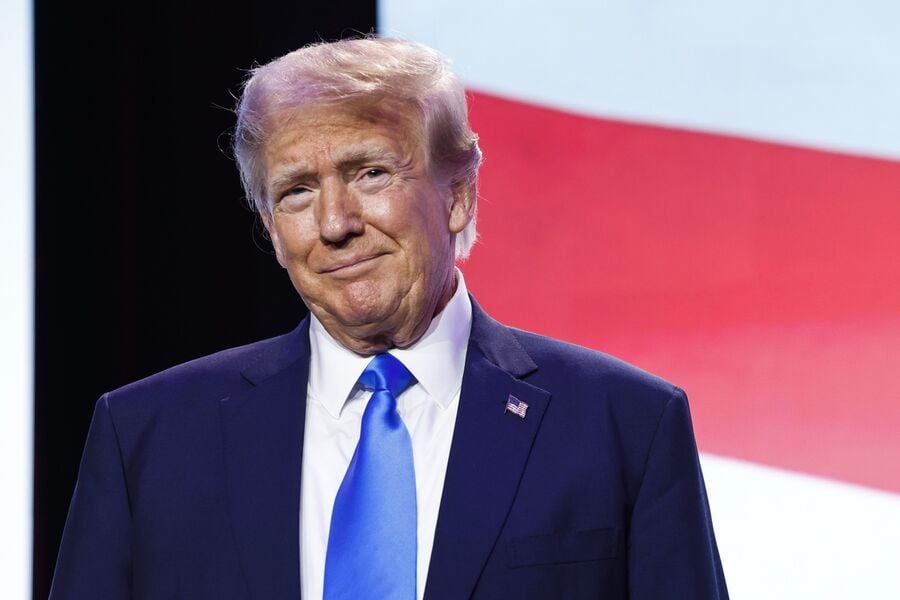

Shares of Trump Media dropped sharply on Wednesday, reflecting market reactions to Donald Trump’s performance in his debate against rival presidential candidate Kamala Harris.
The company’s stock fell more than 13 percent during morning trading, hitting its lowest level since going public in late March. The selloff came in the wake of the pivotal Tuesday night debate, after which many commentators weighed in to criticize Trump's performance.
The company's stock, which trades under the ticker symbol "DJT," has become closely tied to the political fortunes of its largest shareholder, Donald Trump, who owns about 57 percent of the business. Analysts have noted that the firm's value often fluctuates based on Trump's political standing, suggesting Wednesday’s drop may indicate some investor concern about the impact of the debate.
Depending on how significant voter sentiment is to the share price of Trump's social media empire, the trajectory of the presidential race could be a make-or break -factor in his ability to cash out.
“The perception in the market is she won the debate,” Matthew Tuttle, CEO of Tuttle Capital Management told CNN. “If he loses, he has to sell and DJT goes to $1. If he wins, he doesn’t sell and DJT can make a run for it.”
The volatile outlook mirrors previous sharp-swing patterns in Trump Media’s stock price, which saw a bump following his debate with President Joe Biden, the Democrats' previous nominee. Following his exit from the race in July, DJT shares have declined significantly, with the company losing more than half its value since debuting on the public markets.
Trump Media had shown some recovery earlier this week, rising 9 percent in the two days before the debate. However, Trump’s stake, which was valued at $6.2 billion in May, has fallen sharply, reaching approximately $1.8 billion on Wednesday.
The expiration of lock-up restrictions later this month may allow Trump to sell some of his shares, though analysts caution that selling a large portion quickly could further drive down the stock’s value.

Canadian stocks are on a roll in 2025 as the country prepares to name a new Prime Minister.

Two C-level leaders reveal the new time-saving tools they've implemented and what advisors are doing with their newly freed-up hours.

The RIA led by Merrill Lynch veteran John Thiel is helping its advisors take part in the growing trend toward fee-based annuities.

Driven by robust transaction activity amid market turbulence and increased focus on billion-dollar plus targets, Echelon Partners expects another all-time high in 2025.

The looming threat of federal funding cuts to state and local governments has lawmakers weighing a levy that was phased out in 1981.
RIAs face rising regulatory pressure in 2025. Forward-looking firms are responding with embedded technology, not more paperwork.
As inheritances are set to reshape client portfolios and next-gen heirs demand digital-first experiences, firms are retooling their wealth tech stacks and succession models in real time.
